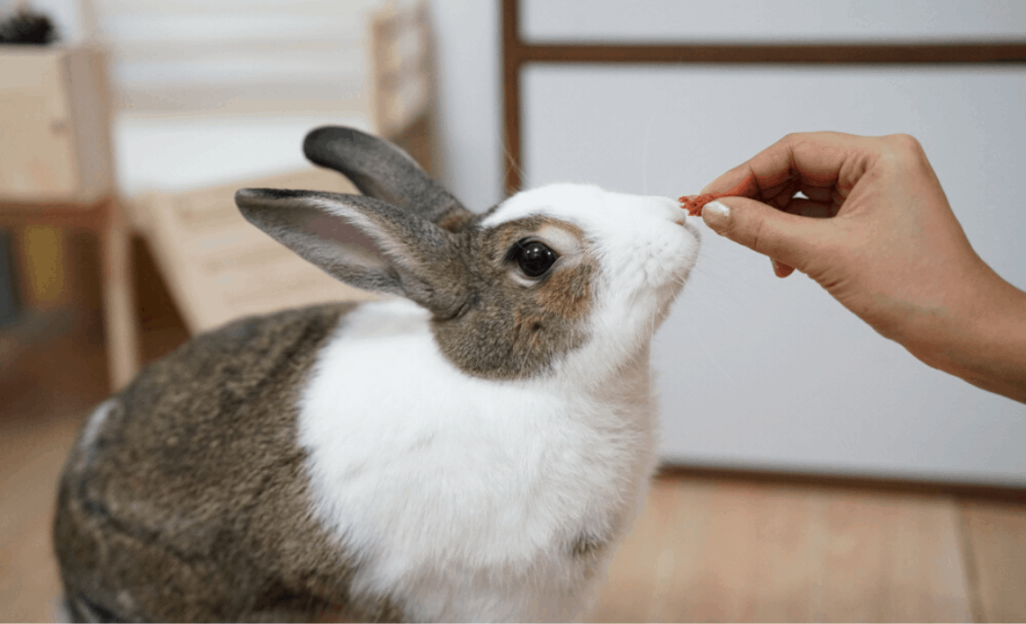Can Rabbits Eat Nuts?
Rabbits are adorable and furry creatures that make great pets. As responsible pet owners, it is important to ensure that their diet is well-balanced and meets their nutritional needs. While rabbits primarily thrive on hay, grass, fresh vegetables, and pellets, there may be some confusion regarding whether or not they can eat nuts. Let’s delve deeper into this topic and find out the answer.

What types of nuts are safe for rabbits?
While rabbits can eat certain types of nuts, it is crucial to be mindful of the quantity and the specific variety. The following nuts are safe for rabbits to consume:
- Almonds: Rabbits can eat almonds in moderation. However, it is important to remove the outer shell, as it can be tough and difficult for them to digest. Also, make sure the almonds are unsalted.
- Hazelnuts: Hazelnuts are safe for rabbits, but they should only be given occasionally as a treat due to their high-fat content.
- Pecans: Pecans can be given to rabbits, but again, in moderation. Pecans should be unsalted and without any added flavorings.
- Walnuts: Rabbits can eat walnuts, but it is vital to remove the shell before offering them. The shell is hard and can be a choking hazard.
Why should nuts be given sparingly?
While nuts may seem like a delicious and healthy option for rabbits, they should be given sparingly due to a few reasons:
- Fat content: Nuts are high in fat, and excessive consumption can lead to obesity in rabbits. Obesity can cause various health issues, including heart problems and diabetes.
- Digestive issues: Nuts can be difficult for rabbits to digest, especially the shells. The shells may cause blockages in their digestive system, leading to severe discomfort and potential health complications.
- Allergies: Some rabbits may have allergies or sensitivities to nuts, leading to digestive upset or skin issues. It is essential to monitor your rabbit for any adverse reactions after introducing nuts to their diet.
Nuts should be considered as occasional treats rather than a staple in a rabbit’s diet.
Nuts can provide some nutritional benefits to rabbits, such as protein and essential fatty acids. However, it is important to keep in mind that their primary diet should consist of hay, fresh vegetables, and pellets that are specifically formulated for rabbits.
FAQs about Rabbits and Nuts
1. Can rabbits eat peanuts?
No, peanuts are not recommended for rabbits. Peanuts are legumes, not nuts, and they have a high-fat content. Additionally, peanuts can be a choking hazard for rabbits due to their size. It is best to avoid giving peanuts to your furry friend.
2. Can rabbits eat cashews?
Rabbits can technically eat cashews, but they should be given sparingly and only as an occasional treat. Cashews are high in fat and can cause digestive issues if consumed in large quantities. It is crucial to remove the salt and any flavorings before offering them to your rabbit.
3. Are rabbits allergic to nuts?
Some rabbits may be allergic to nuts, just like humans can be. Allergic reactions in rabbits may manifest as digestive upset, skin irritations, or respiratory issues. If you suspect your rabbit has an allergy to nuts or any other food item, consult a veterinarian for guidance.
4. How should nuts be introduced to a rabbit’s diet?
If you decide to introduce nuts to your rabbit’s diet, it is important to do so gradually and in small quantities. Start by offering a tiny piece and observe your rabbit’s reaction. If there are no adverse effects, you can slowly increase the amount over time. Monitor your rabbit’s overall health and well-being to ensure they tolerate nuts well.
In conclusion, while rabbits can eat certain types of nuts, it is crucial to offer them in moderation and with caution. Always remove the shells and avoid salted or flavored nuts. Remember, a well-balanced diet primarily consisting of hay, fresh vegetables, and pellets is essential for your rabbit’s overall health and longevity.
Related Articles…
Copyright Notice:
This website utilizes images found online, all copyrights are retained by their original owners. If you would like an image removed, kindly contact us.